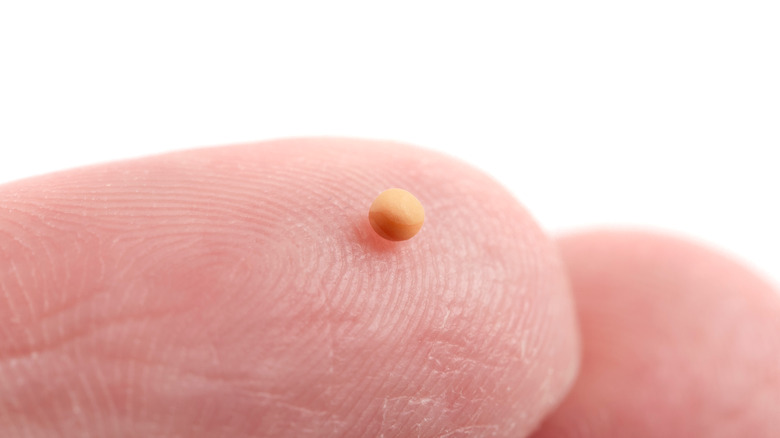What You Didn't Know About The World's Smallest Bible
The Bible, as a collection of books agreed upon by religious authorities to be a compendium of holy scripture, has been around for a couple of thousand years (although some books predate even that). It's the sacred text of the world's 2.3 billion Christians (per Pew Research Center), and one section of it — the Old Testament — contains the scriptural basis for Judaism as well.
As an instantly recognizable historical and cultural touchstone for large swaths of humanity, the Bible also has been used as the basis for artistic or scientific experiments from time to time. Need to create an exceptionally large book for an art installation? The Bible works, and probably works better than, say, "Uncle Tom's Cabin" or "Little Women." Need to create an exceptionally small book the size of a grain of sugar to show just how far nanotechnology has come? A team of Israeli scientists did that very thing, according to the Israeli Ministry of Foreign Affairs, using, of course, the Bible (or more specifically, the Old Testament).
You could lose this Bible in the palm of your hand
In the image featured above, you can see a mustard seed on a fingertip. The Nano Bible, produced by the Russell Berrie Nanotechnology Institute at the Technion in Haifa, Israel, is smaller even than the seed, according to the Israeli Ministry of Foreign Affairs, and roughly the size of a grain of sugar. The gold-plated silicon chip is roughly 0.5 millimeters squared, and contains all 1.2 million letters of the Hebrew Bible. And in much the same way the ancients recorded documents by engraving in stone, the process that produced the Nano Bible works by focusing an ion beam at the chip and knocking away the gold. The entire process takes about 90 minutes. If you were interested in actually reading the document, you'd need a microscope capable of magnifying 10,000 times.
The true value of the Nano Bible lies in its use as a metaphor for the wide-open world of possibilities afforded by nanotechnology. Already the tech is used in desalinating water and in delivering medications to specific body parts, without harming other tissues, among multiple others.

